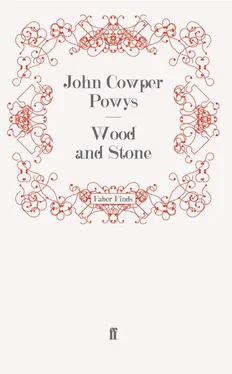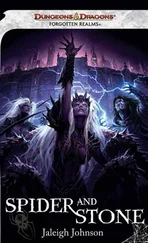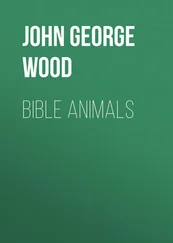John Cowper Powys
Wood and Stone
DEDICATED
WITH DEVOTED ADMIRATION
TO THE GREATEST POET AND NOVELIST
OF OUR AGE
THOMAS HARDY
THE following narrative gathers itself round what is, perhaps, one of the most absorbing and difficult problems of our age; the problem namely of getting to the bottom of that world-old struggle between the “well-constituted” and the “ill-constituted,” which the writings of Nietzsche have recently called so startlingly to our attention.
Is there such a thing at all as Nietzsche’s born and trained aristocracy? In other words, is the secret of the universe to be reached only along the lines of Power, Courage, and Pride? Or, — on the contrary, — is the hidden and basic law of things, not Power but Sacrifice, not Pride but Love?
Granting, for the moment, that this latter alternative is the true one, what becomes of the drastic distinction between “well-constituted” and “ill-constituted”?
In a universe whose secret is not self-assertion, but self-abandonment, might not the “well-constituted” be regarded as the vanquished, and the “ill-constituted” as the victors? In other words, who, in such a universe, are the “well-constituted”?
But the difficulty does not end here. Supposing we rule out of our calculation both of these antipodal possibilities, — both the universe whose inner fatality is the striving towards Power, and the universe whose inner fatality is the striving towards Love, — will there not be found to remain two other rational hypotheses, either, namely, that there is no inner fatality about it at all, that the whole thing is a blind, fantastic, chance-drifting chaos; or that the true secret lies in some subtle and difficult reconciliation, between the will to Power and the will to Love?
The present chronicle is an attempt to give an answer, inevitably a very tentative one, to this formidable question; the writer, feeling that, as in all these matters, where the elusiveness of human nature plays so prominent a part, there is more hope of approaching the truth, indirectly, and by means of the imaginative mirror of art, than directly, and by means of rational theorizing.
The whole question is indeed so intimately associated with the actual panorama of life and the evasive caprices of flesh and blood, that every kind of drastic and clinching formula breaks down under its pressure.
Art, alone, — that mysterious daughter of Life, — has the secret of following the incalculable movements of the Force to which she is so near akin. A story which grossly points its moral with fixed indicative finger is a story which, in the very strain of that premature articulation, has lost the magic of its probability. The secret of our days flies from our attempts at making it fit such clumsy categories, and the maddening flavour of the cosmic cup refuses to be imprisoned in any laboratory.
At this particular moment in the history of our planet it is above all important to protest against this prostituting of art to pseudo-science. It must not be allowed to these hasty philosophical conclusions and spasmodic ethical systems, to block up and close in, as they are so ready to do, the large free horizons of humour and poetry. The magic of the world, mocking both our gravity and our flippancy, withdraws itself from our shrewd rationalizations, only to take refuge all the deeper in our intrinsic and evasive hearts.
In this story the author has been led to interest himself in the curious labyrinthine subtleties which mark the difference, — a difference to be observed in actual life, quite apart from moral values, — between the type of person who might be regarded as born to rule, and the type of person who might be regarded as born to be ruled over. The grand Nietzschean distinction is, in a sense, rejected here upon its own ground, a ground often inconsequently deserted by those who make it their business to condemn it. Such persons are apt to forget that the whole assumption of this distinction lies in a substitution of œsthetic values, for the values more commonly applied.
The pivotal point of the ensuing narrative might be described as an attempt to suggest, granting such an aesthetic test, that the hearts of “ill-constituted” persons, — the hearts of slaves, Pariahs, cowards, outcasts, and other victims of fate, — may be at least as interesting , in their bizarre convolutions, as the hearts of the bravest and gayest among us. And interest , after all, is the supreme exigency of the aesthetic sense!
In order to thrust back from its free horizons these invasions of its prerogatives by alien powers, Art must prove itself able to evoke the very tang and salt and bitter-sweetness of the actual pell-mell of life — its unfolding spaces, its shell-strewn depths. She must defend herself from those insidious traitors in her own camp who would betray her into the hands of the system-makers, by proving that she can approach nearer to the magic of the world, without a system, than all these are able to do, with all of theirs! She must keep the horizons open — that must be her main concern. She must hold fast to poetry and humour, and about her creations there must be a certain spirit of liberation , and the presence of large tolerant after-thoughts.
The curious thing about so many modern writers is, that in their earnest preoccupation with philosophical and social problems, they grow strained and thin and sententious, losing the mass and volume, as well as the elusive-blown airs, of the flowing tide. On the other hand there is an irritating tendency, among some of the cleverest, to recover their lost balance after these dogmatic speculations, by foolish indulgence in sheer burlesque — burlesque which is the antithesis of all true humour.
Heaven help us! It is easy enough to criticize the lath and plaster which, in so many books, take, the place of flesh and blood. It is less easy to catch, for oneself, the breath of the ineffable spirit.
Perhaps the deplorable thinness and sententiousness, to which reference has been made, may be due to the fact that in the excitement of modern controversy, our enterprising writers have no time to read. It is a strange thing, but one really feels as though, among all modern English authors, the only one who brings with him an atmosphere of the large mellow leisurely humanists of the past, — of the true classics, — is Mr. Thomas Hardy.
It is for this reason, for the reason that with this great genius, life is approached in the old ample ironic way, that the narrator of the following tale has taken the liberty of putting Mr. Hardy’s name upon his title-page. In any case mere courtesy and decency called for such a recognition. One could hardly have the audacity to plant one’s poor standard in the heart of Wessex without obeisance being paid to the literary over-lord of that suggestive region.
It must be understood, however, that the temerity of the author does not carry him so far as to regard his eccentric story as in any sense an attempted imitation of the Wessex novelist. Mr. Hardy cannot be imitated. The mention of his admirable name at the beginning of this book is no more than a humble salutation addressed to the monarch of that particular country, by a wayward nomad, lighting a bivouac-fire, for a brief moment, in the heart of a land that is not his.
MIDWAY between Glastonbury and Bridport, at the point where the eastern plains of Somersetshire merge into the western valleys of Dorsetshire, stands a prominent and noticeable hill; a hill resembling the figure of a crouching lion.
Читать дальше












